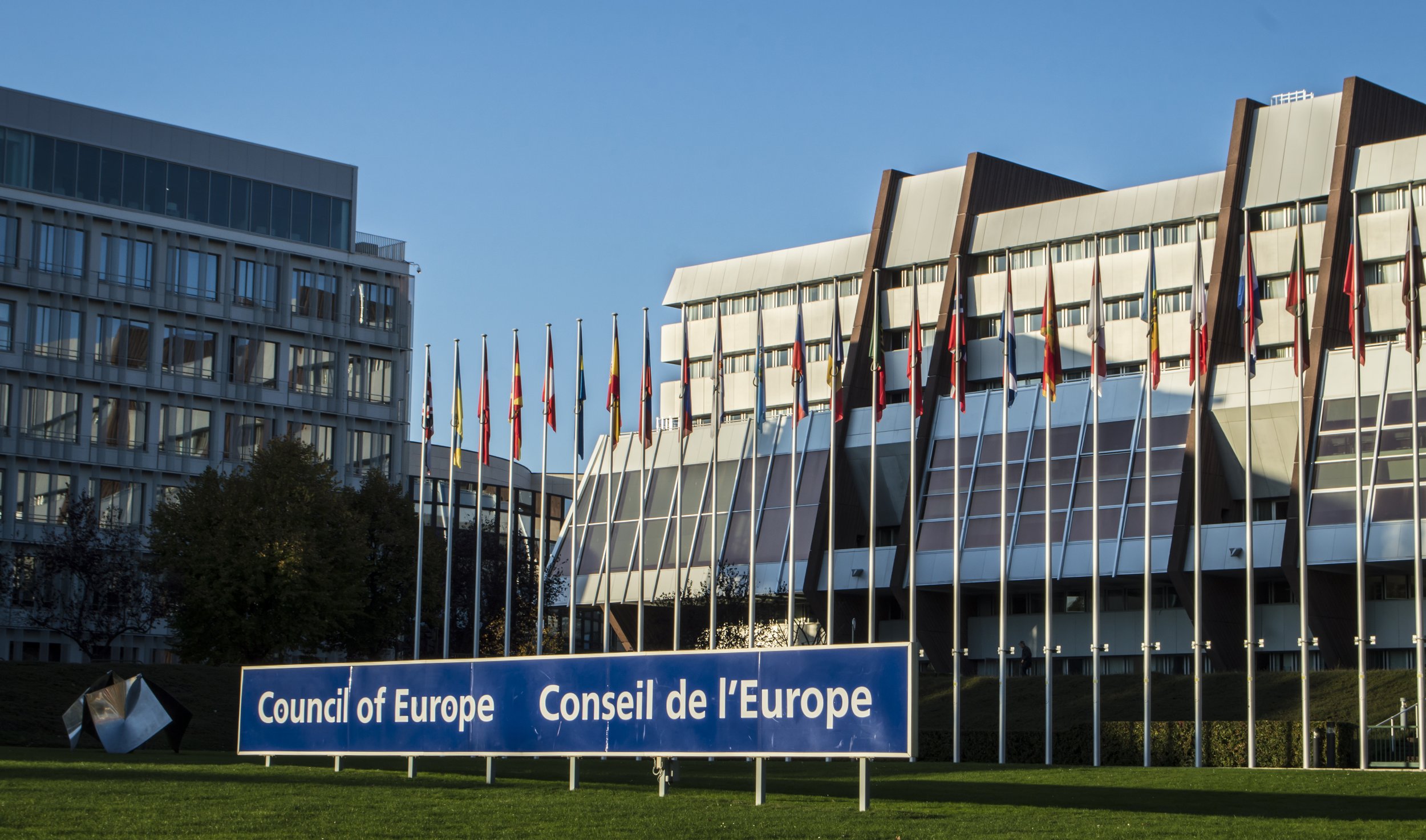Council of Europe Platform on Safety of Journalists – Annual Report 2023
Council of Europe. Photo Contributor: Marco Merk Bruno (Shutterstock)
7 March – Today, the Partner Organisations of the Platform to promote the protection of journalism and safety of journalists publish their 2023 annual report under the title “War in Europe and the fight for the right to report”. The report reveals a continued degradation of press freedom across the continent. Throughout 2022, the Platform documented 289 alerts concerning 37 countries, with journalists being murdered, imprisoned, physically attacked, legally harassed, and subjected to smear campaigns.
The annual report has cast doubt on Member States’ commitment to upholding obligations on freedom of expression, the protection of journalism, and the safety of journalists under the Council of Europe’s statute and the European Convention on Human Rights.
The report reviews and analyses the 289 alerts recorded by the Platform during 2022, outlining the most significant and severe threats to journalism and press freedom across the region. 2022 was undoubtedly a year marked by war in Europe but also a range of new and established methods of silencing independent journalism, including surveillance and spyware, legal harassment, arrests and detention, media capture, restrictive legislation, and continued cases of impunity. The contents of the report illustrate a clear and urgent need for the Council of Europe, Member States, and other European institutions to address the threats facing journalism in Europe with swift and coordinated action.
Russian invasion and the war on journalism
2022 was a year scarred by Russia’s war of aggression in Ukraine, during which the Platform reported at least 12 journalists and media workers have been killed while performing their professional duties. A further 21 have been injured. The implications of the war on media freedom also go far beyond the deaths and injuries of media workers on the ground. Russian disinformation has flooded the media landscape in Ukraine and across Europe and Russian authorities have imposed draconian censorship rules to brutally silence independent voices at home.
The Partner Organisations maintain condemnation of the threats to the lives and safety of journalists resulting from Russian aggression and will continue documenting attacks on media workers and attempts to restrict coverage of the war, as well as exposing potential war crimes to facilitate accountability and bring those responsible to justice.
A 60% rise in the number of imprisoned journalists
As of 31 December 2022, 127 journalists were reported to be in detention by the Platform – 52 in Türkiye, 32 in Belarus, 22 in Russia, 14 in the Russian-occupied territories of Ukraine, 4 in Azerbaijan, and one each in the United Kingdom, Georgia, and Poland. This represents an increase of 60% compared to 2021.
Below are some additional key findings of the report:
· Apart from the journalists who died on active duty as a result of Russia’s war of aggression against Ukraine, the Platform recorded one journalist killed in the exercise of his functions (Güngör Arslan in Türkiye), compared to four who died the previous year outside of a war zone. None of the 26 active alerts on the Platform regarding impunity for murder cases moved to “progress” or “resolved” status.
· The use of legal action to intimidate and silence reporting remains a favourite tool for certain politicians, business tycoons, and other powerful figures, with at least twenty defamation and other types of legal proceedings documented on the Platform.
· Harassment and smear campaigns online and offline continued unabated as private citizens and public officials tried to intimidate journalists and coerce them not to cover sensitive stories.
· New restrictive legislation was adopted or proposed in several Member States, including Armenia, Georgia, Türkiye, and the United Kingdom, muzzling journalists and impeding their ability to exercise their profession.
· The number of Member States’ responses to these was disappointingly low: replies were filed for 48 alerts – a paltry 16% reply rate.
Call for increased engagement from Member States
Compounding the distinct lack of improvement for the press freedom situation in Europe, the annual report also highlights that replies were only filed by Member States for 48 alerts. Of those, only 13 were considered as “resolved” by the end of the year. The Partner Organisations express their dismay at this unacceptably low response rate and reiterate the need for Member States to uphold their obligations under the Council of Europe’s Statute and the European Convention on Human Rights. Tackling the broad range of threats facing independent media requires coordinated and robust action and must start with engagement from Member States around the alerts recorded by the Platform and in line with the recommendations proposed in the 2023 annual report.The Platform to promote the protection of journalism and safety of journalists was set up by the Council of Europe in 2015, in co-operation with prominent international NGOs active in the field of the freedom of expression and associations of journalists, to provide information which may serve as a basis for dialogue with member states about possible protective or remedial action.
The 15 partners are the European Federation of Journalists, the International Federation of Journalists, the Association of European Journalists, Article 19, Reporters without Borders, the Committee to Protect Journalists, Index on Censorship, the International Press Institute, the International News Safety Institute, Rory Peck Trust, the European Broadcasting Union, PEN International, the European Centre for Press and Media Freedom, Free Press Unlimited and the Justice for Journalists Foundation.

